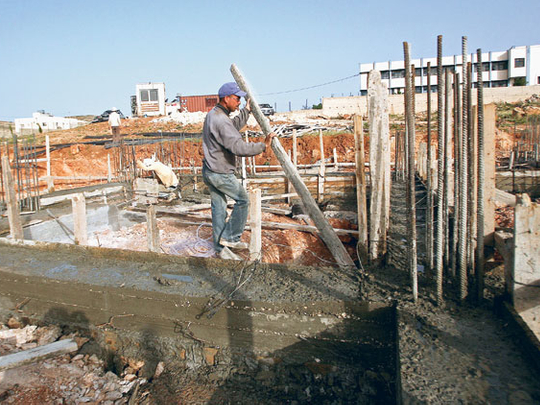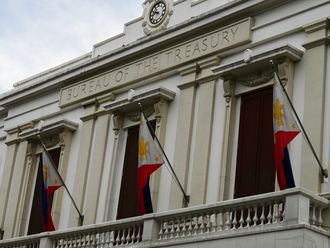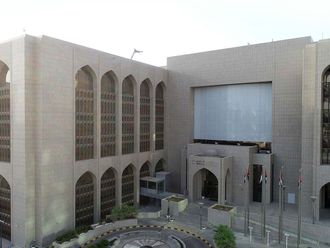
Dubai: The Palestinian economy is likely to face gloomy prospects in 2010 unless collective actions are taken by the Palestinian National Authority, Israeli government and the donor community, an International Monetary Fund (IMF) report concluded.
The report, which was released yesterday, particularly mentioned the improvised and besieged Gaza Strip. It stressed the need to lift the three-year-old Israeli blockade on Gaza in order to maintain the macroeconomic improvement recorded in the Palestinian territories, mainly the West Bank, in 2009.
However, "in Gaza conditions remain difficult due to the blockade", including the restrictions on capital inputs, raw and building materials to the strip which have impeded the post-war private sector and the reconstruction efforts, said the report entitled Macroeconomic and Fiscal Framework for the West Bank and Gaza: Fifth Review of Progress.
Steps needed
"Real GDP in the West Bank and Gaza is estimated (in 2009) at 6.8 per cent, consisting of an estimated 8.5 per cent growth in the West Bank and 1 per cent in Gaza," the report said.
"Concerted" steps needed to support the Palestinian economy, mainly "a steady removal of remaining obstacles on movement and access in the West Bank" including Palestinians' access to areas that are totally under Israeli control, such as border areas with both Jordan and Israel as well as main roads in the West Bank.
Among the other steps to maintain the Palestinian economy is the lifting of Gaza trade restrictions.
Second, the PA would continue with a "prudent" fiscal policy supported by institution-building measures, structural reforms and sound public expenditure management, as well as the continuation of the donors in providing "adequate and predictable financial assistance" for the current budget and public investment.
"Under the baseline scenario based on the above assumptions, real GDP growth would continue at about 7 per cent in 2010, and rise gradually to 10 per cent by 2012-13," the IMF report said.
Real income per capital would rise by about 6 per cent per year over the next three years, and unemployment rate would decline from 25 per cent in 2009 to 15 by 2013.
The recurring budget deficit would fall as a share from GDP from 22 per cent in 2009 to 6 per cent, which would give room for "a substantial rise in donor-financed public investment".
However, if no steps were taken to support the Palestinian economy, the "pessimistic" scenario expects the "real GDP growth will slow down to 5 per cent in 2010 and remains at around 4 per cent over the medium term."
In 2009, donor aid was estimated at about $1.35 billion (Dh4.95716 billion) compared to the recurrent budget's external financing requirements of $1.45 billion.
Spending lacking
Budget deficit would decline from 22 per cent to 18 per cent, report says According to the IMF report, development spending in 2009 is estimated at about $400 million (Dh1.46 million), well below the $1.1 billion envisaged in the budget (including $0.6 billion for Gaza reconstruction projects).
The recurrent budget deficit on a cash basis would decline as a share of GDP from about 22 per cent to 18 per cent.
According to the 2010 draft budget, the wage bill is envisaged to decline by 1.7 per cent of GDP, reflecting a ceiling for a general wage rate increase of 4 per cent, and a 2 per cent increase in employment owing to a net addition of 3,000 workers, mainly in the health and education sectors.












